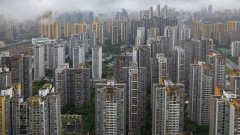Scholars pointed out that a few big cities are unwilling to let go of the foreign population settled, mainly to avoid the overwhelming increase in the growth of the household registration and fiscal expenditure.From the perspective of national equal rights, the unfair rights and interests included in the household registration system should be abolished, and the establishment of a resident household registration system with the basic principle of protecting the right to migration of the people.
China will continue to deepen the reform of the household registration system and try to register the hukou system with frequent residence.The official website of the China National Development and Reform Commission issued the "Fourteenth Five -Year" new urbanization implementation plan on Tuesday (July 12), which requires improving the implementation of oversized cities with a resident population of more than 5 million in urban areas, encouraging the cancellation of annual settlement limit;The population of 3 million to 5 million cities is settled; the restrictions on the settlement of cities with a permanent population of less than 3 million in urban areas will be fully eliminated to ensure that the population and local agricultural transfer population enter the city and settle in the city.
"Fourteen Five -Year Plan" refers to China's 14th five -year plan, from 2021 to 2025.
China's household registration has differences in urban and rural areas, and the rights and interests of different household registration in education, employment, housing, and medical care are also different.Generally speaking, there are more interests attached to large cities such as Beijing and Shanghai, and the foreign population is more attractive.
Entering the obstacles of small and medium -sized cities and some large cities basically eliminated
Household registration issues have seriously hindered China's population flow and urbanization process, especially the majority of agricultural household registration personnel have been treated with unfair treatment.In the past 20 years, China's household registration system reform and urbanization have made significant progress, and the obstacles of the foreign population into small and medium -sized cities and some large cities have basically been eliminated.
The plan released by the National Development and Reform Commission introduced that at the end of 2020, the urbanization rate of China's permanent population reached 63.89%, and the urbanization rate of the household registration population increased to 45.4%.The citizenship of the agricultural transfer population has achieved remarkable results. The reform of the household registration system has achieved historic breakthroughs. The 100 million agricultural transfer population and other resident population have been achieved smoothly in cities and towns. The residence permit system is fully implemented. The level and equalization of basic public services have significantly improved.
But there are still many restrictions on the settlement of large and mega -in cities such as Beijing and Shanghai.Relevant scholars point out that a few big cities are unwilling to let go of the foreign population to settle down, mainly to avoid the overwhelming of infrastructure and fiscal expenditure from the growing population growth.
From the perspective of national equal rights, the unfair rights and interests included in the household registration system should be abolished, and the registration system for residents with the basic principle of protecting the right to migration of national freedom should be established.
Beijing and Shanghai to attract talents to adjust the foreign population settlement policy
In recent years, first -tier cities such as Beijing and Shanghai have also begun to adjust the policies for the settlement of foreign population to attract more talents to work and live.Beijing released the management measures for the introduction of graduates in Beijing in 2021, proposing a master's degree and doctoral graduate of colleges and universities across the country. Beijing universities and "double first -class" colleges and universities in Beijing can apply for introduction by employers; Tsinghua University, Peking University and other sevenThe undergraduate and above of colleges and universities, the master's degree in the "double first -class" construction discipline does not occupy the settlement indicator.
The pace of Shanghai introduction of talents is even greater.On June 7 of this year, Shanghai issued a notice on helping to re -production and re -production implementation of special support measures. It is a social security requirement that the top 100 universities and full -time work in Shanghai to work in Shanghai to work in Shanghai.At the end of June, Shanghai also announced that the city's research institutes and colleges and universities' fresh graduates can be settled directly.
The Times Weekly recently quoted Peng Peng Peng Peng, executive chairman of the Guangdong Provincial System Reform Research Association, said that from the perspective of the general trend of population policy and population growth, the "talent war" is turning to the "population war".factor.As a result, the threshold for entry will become lower and lower, and even most cities will eventually cancel households.




